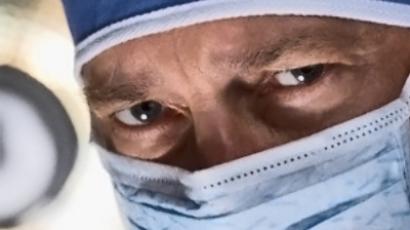AIDS: everyday battle for life and cure
Caused by the HIV virus, AIDS is now a global pandemic that has already claimed the lives of millions. However, some who are forced to live on the brink say getting treatment can be a battle in itself.
Aleksey Burlak is HIV positive. He is just one of about one million people infected with the virus in Russia alone – a country, the UN says, with one of the fastest growing rates of HIV in the world.
“I have to live with HIV and that involves a lot of difficult things. Not just physical, but also social and psychological,” he told RT. “Sometimes I am refused treatment, and I have to fight against that.”
While Aleksey and others like him continue to fight their battles, all they are really longing for is a cure. It has already been a long wait for those with the virus and a respite doesn't seem to be anywhere in sight just yet.
“The main issue is that at this point, we do not even know which part of the virus causes immune deficiency,” said Vadim Pokrovsky, the head of the Federal Center for AIDS Prevention. “That is why researchers argue about the type of vaccine needed.”
Scientists and doctors have been trying to find a remedy since HIV was identified in the early 1980s, but they have only managed to come up with preventive treatments and medication that slows down the degenerative process of the virus.
“There are more than 25 types of drugs with clinical proof that they are effective. If a person takes them daily, they suppress the virus, preventing it from spreading. The person does not get AIDS. But at this point, there is no drug that can destroy the virus completely,” Pokrovsky said.
One of those clinically approved drugs is Azidothymidine or AZT, a type of anti-retroviral drug used for the treatment of HIV and AIDS. Joan Shanton of the Immunity Resource Foundation is strongly against such treatment.
“Conventional treatment has actually caused the deaths of a whole generation of young gay men in America when they were on the high doses of AZT. That is well documented,” she said. “So it is extremely important to be challenging this hypothesis.”
There are almost 32 million people in the world infected with HIV or AIDS, and more than one million people will die this year alone. International organisations have called it a pandemic, but there are those who stand against this belief and are challenging the very facts we have come to accept as truth.
“It is verifiable that AIDS treatment has killed a huge number of AIDS patients in the early 90s and it is verifiable that the AIDS treatment today is just less toxic than in the early 90s. I would call for an open debate to test the best arguments,” said Doctor Christian Fiala.
Organisers of the 18th International AIDS Conference, being held this week in Vienna, say it is a gathering of individuals committed to ending what they have classified as a pandemic. For Alexey Burlak, he would rather not get his hopes up. All he wants are the facts.
“I don't expect to see any breakthrough at this conference. I just hope that it will be made clear as to where we are at regarding the vaccine,” he said. “Of course, we needed it yesterday.”
Meanwhile the President of the International AIDS society, Julio Montaner, stated that world leaders aren't doing enough to ensure HIV-positive people get the treatment they desperately need.
He was speaking at the ongoing AIDS conference in Vienna, which is calling for an end to treatment discrimination.
Many questions were posed at the conference. Does HIV really cause AIDS? Are the tests accurate? Is AIDS drug treatment safe? These controversial issues are among the most hotly debated at the AIDS 2010 conference in Vienna, attended by over 25,000 people.
The focus of the open talks at the conference is that a successful response to HIV rests on a successful response on an individual level. In particular, the need for greater resources to be put into needle exchange programs for injective drug users.
The debate will continue throughout the week – but it’s not a new one. Since AIDS first gained public attention in the 1980s, there have been people who openly oppose the mainstream views.
There was a heated debate on RT between two AIDS experts – Alan Berstein from the Global HIV Vaccine Enterprise and Juliana Sacher, a doctor who questions official HIV/AIDS theories.













